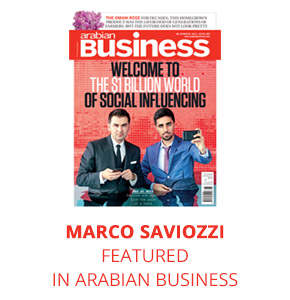How should financial professionals spend their spare time? As brokers, it’s easy to forget that such a thing as downtime exists. We work long hours, often in a highly stressful environment in which traditional ideas of the working day don’t apply, and the boundary between work and personal time can be very blurred.
But maintaining a level of separation is important for you as an individual, both physically and mentally, as well as for your employer. Even the most prominent figures in global finance have hobbies – Warren Buffett famously loves playing bridge and George Soros enjoys a good game of tennis.
Mastering the art of balancing a successful career with finding some downtime at the end of each day and week is essential. Let’s look at why; and how you can approach it.
‘I thrive on stress’ – why work/life balance matters to everyone
If you’re the type of person who says they thrive on stress, here’s some news for you: you’re probably right. Stress can sharpen your attention and help you to push yourself further, achieving more than you would if you stayed permanently in your comfort zone. But if you would still like to be in a successful career several years from now, you need to know that the longer-term picture isn’t so bright. Prolonged exposure to stress can cause all sorts of health problems for both mind and body.
Prolonged exposure to stress can cause all sorts of health problems for both mind and body.
If you’re still in the early days of your career as a broker, it’s easy to tell yourself you’re impervious to stress. It’s a job that can be rewarding both emotionally and financially, which can help you absorb the pressure. But from experience, you need to take a longer-term view. According to recent rankings from Huffington Post, being a broker sits in the top 10 professions for poor work/life balance.
And it’s likely to get worse. Research carried out by the US National Institute of Health a few years ago draws attention to a range of contributory factors including competition, pressure, market volatility, increasing client expectations and new disruptive technologies, along with developments like online trading and after-hours trading. Collectively these are making our work carousel spin more and more quickly each year, with brokers having to fit an increasing – and increasingly frenetic – workload into their typical day.

Why your ‘typical’ day isn’t really typical
Actually, the fact that no two days are ever the same is one of the attractive things about being a broker. I pointed out in an earlier article how professional trader and author Gatis Roze checks the NASDAQ pre-market pages, examines overseas markets, reads the news and investment papers, studies the psychology of the market and tracks volumes, prices and investor sentiment – and all before lunch. Another enthusiastic account from a junior broker describes a working day that begins long before he reaches his desk at 7:30 am.
Exciting or not, a typical day as a broker is in fact atypical for human beings in general. It can become exhausting, and sooner or later you risk burning out. Even if you still feel you’re invincible, the figures beg to differ. Research from Willis Towers Watson in 2014 found that, sooner or later, workplace stress leads to disengagement: of those employees experiencing high stress levels, over half said they were disengaged from their jobs. Taking this further, Gallup looked at the relationship between productivity and engagement across nearly 1.4 million employees, and found that staff identifying as ‘engaged’ outperformed their less engaged colleagues by 21%. In other words, stress tends to make people less engaged, which means they get less done.
Stress tends to make people less engaged, which means they get less done.
That’s bad news for both you and your employer. Yet, while 75% of UAE workers surveyed by recruitment firm Bayt felt that a good work/life balance was important to their motivation at work, less than 20% believed their company was serious about helping them find it. If that’s true, achieving the right balance is something you’ll mainly need to do on your own.
Learning to love your free time
If you’re a workaholic, the notion of downtime may be anathema. You might feel that using your free time constructively means catching up with the news or researching the markets. Of course there’s a place for that, but equally there’s a place for getting away from it. I mentioned Warren Buffett’s dedication to playing bridge, something he’s very serious about. He says it appeals to his logic, his ability to solve problems and his concentration. He goes on to note that to be a good bridge player:
‘You have to look at all the facts. You have to draw inferences from what you’ve seen, what you’ve heard. You have to discard improper theories about what the hand had, as more evidence comes in sometimes.’
It’s not hard to see that Buffett’s love affair with bridge centres on a skillset that sounds very much like that of a broker. Both require analytical skills, fluid intelligence and the ability to assimilate new evidence. Both require skilful observation. Both can produce the ‘win’.
Making the most of your free time has more benefits than you would think. It gets you away from the office, and helps you develop interests that keep you match-fit. Enjoying your downtime doesn’t have to hurt your working life. It can stimulate and improve it, and give you opportunities to meet new people and expand your network in new directions.
Improve your game – improve yourself
A great example of this is sport. Vincent McCaffrey, CEO of recruiters Game Theory Group, notes in an interview with fastcompany.com that people who are used to competing and performing in sport often bring important interpersonal skills to the workplace: resilience, a team-oriented approach and communication among them. Sportspeople are good at understanding roles and responsibilities, they’re used to taking constructive criticism and they’re good at juggling responsibilities. Crucially, they also display excellent time-management skills.
Playing sport can be a great way to blow off stress while putting your spare time to good use. Many financial high achievers gravitate towards competitive pastimes. Take Pippa Middleton’s husband James Matthews, the multimillionaire founder of Eden Rock Capital Management. His hobbies? Ultra marathons, skiing and tennis: endurance, agility and an eye for opportunity. It’s no coincidence.
I don’t have time for downtime
Given the hours we work, it can be difficult to fit in activities that aren’t work-related. But if you’re still not sold on the idea of downtime, even for its obliquely work-related benefits, let’s look at how it could directly impact your working day.

In 2014, Desktime.com looked into what separates the most productive employees from everyone else. What they found was that the highest performers were more likely to take breaks. It’s impossible to be at your best 100% of the time, and the simple truth is that the human brain can’t concentrate for eight hours straight, let alone for the extended days we work. The research concluded that the best way to refresh your attention span is to take regular breaks, returning to your work with new dedication and focus. Even if you feel you can just power through, without a break, in reality you’re becoming less productive, and just kidding yourself otherwise. Getting away will directly improve your performance back at the desk. For no other reason than that, look seriously at making more spare time for yourself.
What’s more, outside interests can help you to perform well in interviews. A recent report from the Guardian newspaper notes that, when competition is intense, employers will look beyond those parts of your CV which directly qualify you for the job. If employers are reviewing candidates for their well-rounded personality as well as their direct experience, a CV that shows little beyond work achievements won’t shine.
A recent report from the Guardian newspaper notes that, when competition is intense, employers will look beyond those parts of your CV which directly qualify you for the job.
Temper your enthusiasm with wisdom
There’s no harm in dedication, ambition or will to succeed. You need grit, awareness, the ability to spot both opportunities and risks, and a willingness to go the extra mile. But all these instruments will be blunted if you don’t give yourself time to regroup.
A good broker knows how to play the long game too. No matter how new and enthusiastic you are, you haven’t entered brokerage only to burn out after one year. You need to know how to apply the brakes as well as hit the gas. Schedule downtime, make realistic to-do lists, and get good at prioritising.
At some point, you have to disconnect completely and do something that takes you away, somewhere else, both mentally and physically. Even for short periods of time. Hobbies can be enjoyed for their own sake or as creative ways to make you better at your job. If having fun can keep your skills sharp too, it’s a win-win.
About the author: Marco Saviozzi, CEO
Marco attained an MBA in Finance from the IEMI, Genève, before starting his career in corporate sales at Xerox. He would eventually move on to French firm Viel (now Tradition), before being headhunted by prestigious London firm ICAP, where he was brought in as head of the French Franc IRS Desk. He quickly rose to become a part of the management committee as Co-Head of the Euro Desk, and later moved to the New York office to head up the Equity Derivatives team. After 14 years at ICAP, in 2007, he opened Newedge – a Calyon / Societe Generale brokerage arm in Dubai. Two years later he would go on to form GMG as a co-founder with several past colleagues. When he is not facilitating trades on behalf of clients, Marco can be found on the golf course or watching his favourites sports – Formula 1 and horse racing.


